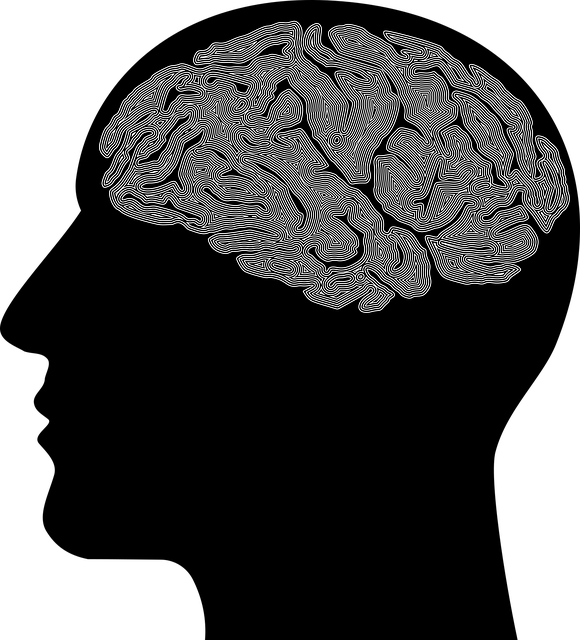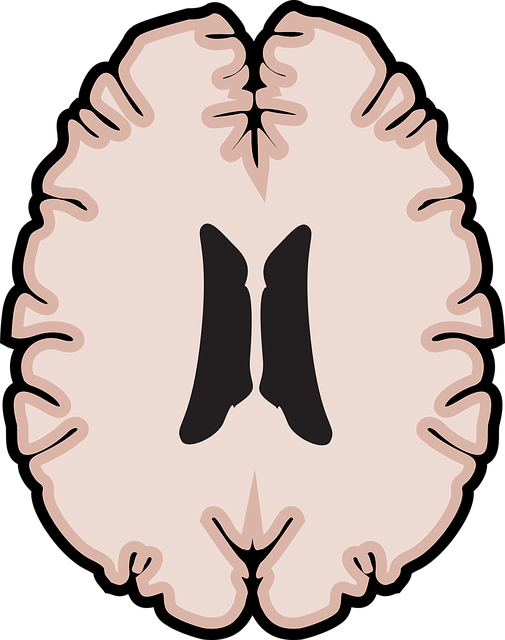Mental health challenges in children often manifest as chronic illnesses requiring long-term management, such as anxiety, depression, ADHD, or eating disorders. Early intervention through tailored therapy approaches like CBT, mindfulness practices, family therapy, and medication management is crucial. Integrating mental health education and mood management strategies aids in effective navigation of these challenges, empowering children and families to lead fulfilling lives. A structured approach includes observing behavioral changes, consulting with healthcare professionals, utilizing assessment tools, and enrolling in Mental Wellness Coaching Programs. Personalized therapeutic strategies, such as CBT and Mind Over Matter principles, cater to individual needs. Creating a supportive home environment with consistent routines and calming activities also supports therapy efforts. Collaboration among child psychologists, psychiatrists, and social workers ensures holistic care tailored to each child's unique challenges.
Mental illness diagnosis and treatment navigation can be challenging, especially when it comes to children. This comprehensive guide aims to provide parents and caregivers with the tools they need to support young minds battling chronic mental health challenges. From recognizing common symptoms of childhood mental illnesses to understanding the diagnosis process, exploring therapeutic options, creating a supportive home environment, and navigating professional support, this article covers crucial aspects of helping kids on their road to recovery. By familiarizing yourself with these steps, you’ll better equip yourself to offer effective therapy for children with chronic illness.
- Understanding Mental Health Challenges in Children: Uncovering Common Chronic Illnesses
- The Diagnosis Process: A Step-by-Step Guide for Parents and Caregivers
- Exploring Therapeutic Options: Effective Treatments for Children with Mental Illness
- Creating a Supportive Environment at Home: Tips for Fostering Recovery
- Navigating Professional Support: Building a Comprehensive Treatment Team
Understanding Mental Health Challenges in Children: Uncovering Common Chronic Illnesses

Mental health challenges in children often manifest as chronic illnesses, which require long-term management and specialized care. These conditions can significantly impact a child’s overall well-being, daily functioning, and future prospects if left undiagnosed or improperly treated. Common childhood chronic mental health disorders include anxiety, depression, bipolar disorder, attention deficit hyperactivity disorder (ADHD), and eating disorders.
Early intervention is crucial in improving outcomes for children with these conditions. Therapy for children with chronic illnesses involves tailored approaches such as cognitive-behavioral therapy (CBT), mindfulness practices, family therapy, and medication management. Integrating mental health education programs designed to raise public awareness and foster early detection can also play a vital role in navigating these challenges effectively. Additionally, mood management strategies taught through comprehensive therapy sessions empower children and their families to cope with symptoms and lead fulfilling lives.
The Diagnosis Process: A Step-by-Step Guide for Parents and Caregivers

Navigating the process of diagnosing a child’s mental illness can be overwhelming for parents and caregivers. Here’s a simplified guide to help you understand the steps involved. Initially, observe any changes in your child’s behaviour or emotional state, such as persistent sadness, anxiety, or extreme mood swings. These observations should prompt open conversations about their feelings and experiences at home and school.
Next, consult with your child’s pediatrician who may conduct a thorough medical examination to rule out any physical causes for their symptoms. They might also refer you to a child psychologist or psychiatrist who will utilise evidence-based assessment tools and interviews to gain insights into your child’s mental wellness. This could include the administration of psychological tests, questionnaires, and structured interviews tailored to specific mental health concerns. Additionally, consider enrolling in Mental Wellness Coaching Programs that promote Mind Over Matter Principles, as these can offer valuable support throughout the diagnosis process and beyond, fostering resilience and coping strategies for both children and their families. Remember, a thorough risk assessment for mental health professionals is crucial to ensure the best care and treatment plan for your child with chronic illness.
Exploring Therapeutic Options: Effective Treatments for Children with Mental Illness

Children experiencing mental illness often require a tailored approach to their therapeutic journey. Exploring various treatment options is essential in supporting young minds and fostering mental wellness. One effective strategy involves cognitive-behavioral therapy (CBT), which teaches children to identify and change negative thought patterns and behaviors, empowering them to manage their conditions effectively. This evidence-based method has shown remarkable results in treating anxiety, depression, and other common childhood mental health disorders.
Additionally, integrating Mind Over Matter principles within therapeutic practices can be transformative. These programs focus on developing resilience, self-awareness, and coping strategies. Mental wellness coaching, combined with stress reduction methods, allows children to gain a deeper understanding of their emotions and learn healthy ways to navigate challenges. Such holistic approaches cater to the unique needs of each child, ensuring they receive comprehensive care tailored to promote their overall mental health and well-being.
Creating a Supportive Environment at Home: Tips for Fostering Recovery

Creating a supportive environment at home is a crucial step for fostering recovery, especially when navigating therapy for children with chronic illness. It’s about transforming your space into a haven where open dialogue and understanding thrive. Encourage positive thinking by establishing consistent routines; this predictability can provide comfort and reduce anxiety relief, which are essential components in managing mental wellness.
Incorporate activities that promote calmness, such as reading together or engaging in gentle exercises tailored for kids. The goal is to create a nurturing atmosphere where your child feels safe to express their feelings, fears, and hopes, all while subtly supporting their therapy efforts through a well-structured home environment. Remember, the mental wellness podcast series production need not be elaborate; it’s about quality time spent fostering connection and healing within familiar walls.
Navigating Professional Support: Building a Comprehensive Treatment Team

Navigating professional support is a crucial step when seeking therapy for children with chronic illness. Building a comprehensive treatment team involves collaboration between various mental health professionals, such as child psychologists, psychiatrists, and social workers. Each member brings unique expertise to address the multifaceted needs of these young patients. For instance, a child psychologist can provide evidence-based therapy for anxiety relief or trauma support services, while a psychiatrist may prescribe medications if needed, in conjunction with psychotherapy.
This integrated approach ensures holistic care tailored to each child’s specific challenges. Effective communication among team members is essential for risk management planning, ensuring continuity and quality of care. By combining specialized treatments and collaborative practices, the team works together to foster positive outcomes and enhance the overall well-being of children navigating their mental health journey.
Mental illness in children is a complex yet manageable challenge. By understanding common chronic illnesses, navigating the diagnosis process, and exploring effective therapeutic options like therapy for children with chronic illnesses, parents and caregivers can create a supportive environment at home and build a comprehensive treatment team. Following these steps ensures children receive the best care possible, fostering their recovery and overall well-being.









